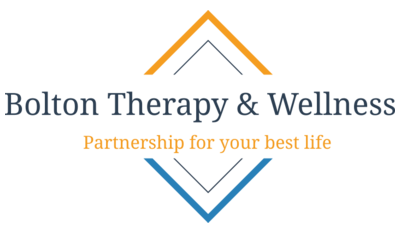
Work with a therapist who understands.
At Bolton Therapy & Wellness, we are experienced and familiar with the unique challenges that members of the LGBTQ community often face, both in society and when seeking therapy services.
You are not alone.
Coping with discrimination and oppression, coming out to one’s family, and sorting out an “authentic” sense of self in the face of social expectations and pressures can lead to higher levels of depression, anxiety, substance use, and other mental health concerns for LGBTQIA people.
LGBTQIA persons seeking individual, couples, or family therapy often bring concerns and life challenges that are common among all people. For example, all couples argue over many of the same things—money, sex, the in-laws, too little quality time - and all people are subject to the same kinds of daily stressors, such as mood swings, workplace stress, or low self-esteem.
We understand that these common issues may be heightened for LGBTQIA clients due to the societal marginalization they experience as LGBTQIA people. An LGBTQIA affirming therapist also has experience and familiarity with helping clients address issues and concerns specifically related to sexual or romantic orientation or gender identity. LGBTQIA Therapy assures that a client can engage in the therapeutic process related to these specific issues in a safe, affirming, non-judgmental environment.
It’s time to feel better about yourself, your life, and your relationships.
Although your sexual or romantic orientation or gender identity may not be a source of distress, people who identify as lesbian, gay, bisexual, transgender, queer, questioning, asexual, or any other orientation or gender identity may find that the social stigma of living as a minority is a source of stress or anxiety. Despite rapidly growing cultural acceptance of diverse sexual and romantic orientations and gender identifications, oppression, discrimination, and marginalization of LGBTQIA people persist.
You may believe therapy can help you but you still have questions about LGBTQIA Therapy.
-
The term "LGBTQ" stands for lesbian, gay, bisexual, transgender, and questioning. Some use the acronym "LGBTQIA" to encompass a broader array of individuals, including those who identify as intersex (I) and asexual (A). The "Q" in the acronym may stand for both "questioning" and "queer." These terms are not synonymous. Some people use the term "queer" as an umbrella term instead of LGBTQIA, but not all people identify as queer or choose to use this term. Others explore alternative terms, including "GSM," which means "gender and sexual minorities" or LGBTQ+.
-
LGBTQ Therapy refers to a therapeutic practice in which a licensed therapist has experience and familiarity with the unique challenges that members of the LGBTQ community often face, both in society and when seeking therapy services. When seeking therapy, whether for issues associated with one's sexual, romantic or gender identity, or for other concerns related to emotional, relationship or mental health, finding a qualified LBGTQ therapist can be critical to a successful therapeutic outcomes.
Like all clients, LGBTQIA clients may choose an LGBTQIA therapist to address a variety of issues for which people seek individual, couples or family therapy. They also may seek help with issues specifically related to sexual or romantic orientation or gender identity, including but not limited to:
anxiety or depression related to interactions with society, family, friends, coworkers or others regarding sexual or romantic orientation or gender identity
questioning one's identity and sense of self
coming out to family, friends, or at work
coping with discrimination, bullying, harassment or oppression
substance abuse
gender dysphoria
relationship issues when one or both partners is "closeted"
-
Yes. Despite greater societal acceptance, LGBTQIA are marginalized identities, which means that LGBTQIA clients may struggle with identity issues due to that marginalization. LGBTQIA clients may also have traumatic past and ongoing experiences related to their LGBTQIA identities, and associated depression, anxiety or other mental health issues. They also may have physical manifestations of identity issues or identity-based trauma. Our therapists are experienced in helping clients process these complex intersectional issues in a safe, compassionate, judgment-free therapeutic environment.



